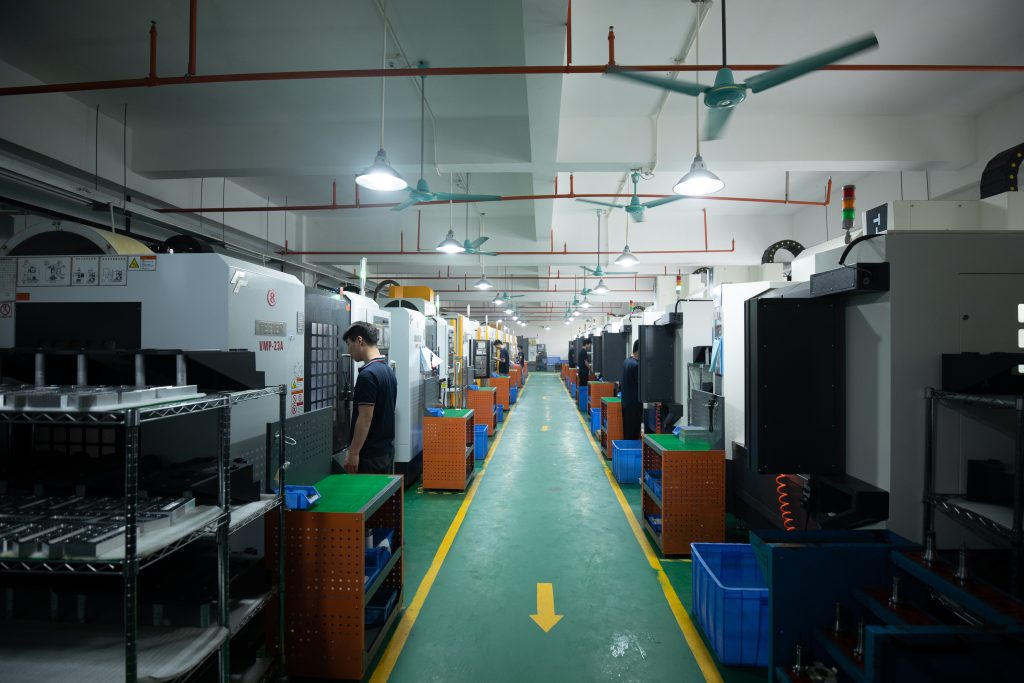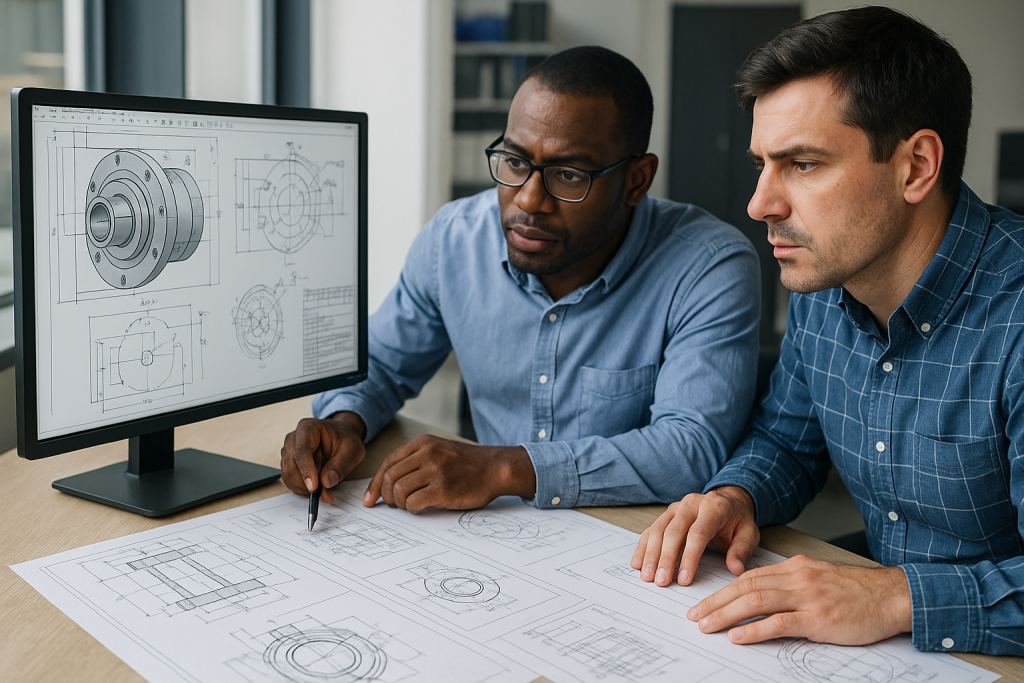
In today’s fast-evolving industrial landscape, precision, efficiency, and scalability are no longer luxuries—they are necessities. At the forefront of this evolution stands CNC machining, a transformative technology redefining how custom components are manufactured. With growing demands for speed, quality, and customization, CNC machining is positioning itself as the bedrock of next-generation manufacturing.
I. Precision Engineering at Its Core
CNC (Computer Numerical Control) machining allows for the creation of complex components with unmatched precision. Whether producing tight-tolerance prototypes or high-volume production runs, CNC machines operate at micron-level accuracy—far beyond the capabilities of manual machining. This makes it an ideal solution for industries such as aerospace, automotive, and medical devices, where consistency and reliability are paramount.
Boona Prototypes specializes in CNC machining services, offering state-of-the-art solutions that ensure each part meets strict dimensional and material specifications.
II. Accelerated Speed and Unmatched Efficiency
With traditional manufacturing methods, producing custom components often required days of setup and manual intervention. In contrast, CNC machines are fully automated, dramatically reducing production time. By utilizing digital CAD/CAM files, components can go from design to finished product in a matter of hours.
Companies like Boona Prototypes optimize this process through rapid prototyping, allowing clients to iterate quickly and bring products to market faster than ever before.
III. Limitless Material and Geometric Versatility
CNC machining supports a vast array of materials—including aluminum, stainless steel, titanium, plastics, and composites. It’s also capable of producing intricate geometries that are difficult or impossible to achieve with traditional methods. Multi-axis CNC systems can simultaneously cut along several planes, reducing setup times and enabling more complex part designs.
This versatility is showcased in Boona’s expertise across industries, from automotive parts to aerospace-grade components and consumer electronics.
IV. Sustainability and Cost Optimization
Although CNC machines require an initial investment, the long-term savings are substantial. Automation reduces labor costs, while precision tooling minimizes material waste. By embracing lean manufacturing principles, CNC machining contributes to sustainable production with a lower environmental impact.
Boona integrates such practices into its CNC machining workflow, emphasizing eco-conscious material use and energy-efficient production cycles.
V. Smart Manufacturing and Digital Integration
The future of CNC machining lies in its seamless integration with Industry 4.0 technologies. Smart sensors, AI-driven maintenance, cloud-based monitoring, and digital twins are transforming CNC machines into intelligent manufacturing hubs. These technologies allow manufacturers to track performance in real-time, predict failures before they happen, and make data-driven decisions on the fly.
Forward-thinking companies like Boona are at the forefront of this transformation, applying advanced digital tools in their prototype manufacturing solutions.
VI. A Competitive Edge in Customization
As market demands shift toward more customized products, CNC machining delivers with speed and precision. Whether it’s a small batch of bespoke parts or iterative prototype testing, CNC enables flexible production without compromising quality or timeline.
Boona’s commitment to on-demand manufacturing empowers businesses to scale production volumes based on need—eliminating excess inventory and reducing overhead.
VII. Challenges and the Path Forward
CNC machining is not without challenges: the high cost of machinery, the need for skilled technicians, and cybersecurity risks in smart systems are real concerns. However, these are increasingly mitigated through workforce upskilling, cloud-based software updates, and the emergence of affordable multi-axis machines.
Boona’s emphasis on DFM (Design for Manufacturing) and collaborative engineering ensures customers can overcome these barriers with confidence and clarity.
Conclusion
As industries move toward more agile, intelligent, and sustainable manufacturing models, CNC machining is proving to be not just relevant—but revolutionary. Its ability to deliver precise, complex, and customizable parts at scale makes it the gold standard for modern component production.
For companies looking to future-proof their manufacturing strategies, investing in reliable CNC machining partners like Boona Prototypes is not just a smart move—it’s an essential one.
FAQs
1. What is CNC machining and how does it work?
CNC (Computer Numerical Control) machining is a subtractive manufacturing process where computer-controlled machines precisely remove material from a workpiece to create custom parts. It uses digital CAD/CAM files to guide the machine’s movement across multiple axes for high-precision results.
2. Why is CNC machining ideal for custom component manufacturing?
CNC machining offers unmatched precision, fast turnaround times, and compatibility with a wide range of materials. It supports low- to high-volume production, making it ideal for industries needing custom solutions like aerospace, automotive, and medical.
3. What materials can be used in CNC machining?
CNC machining supports a variety of materials including aluminum, stainless steel, titanium, plastics (like ABS and PEEK), and composites. This versatility makes it suitable for everything from industrial to consumer-grade components.
4. How does CNC machining compare to 3D printing for prototyping?
While 3D printing is fast for initial concept models, CNC machining offers superior strength, surface finish, and material range for functional prototypes and end-use parts. It’s especially better for tight-tolerance, load-bearing components.
5. Is CNC machining cost-effective for small production runs?
Yes, CNC machining is highly efficient for small batches due to minimal setup changes and fast programming. Boona Prototypes, for example, offers on-demand manufacturing tailored to both prototypes and small production runs.
6. What are the advantages of multi-axis CNC machining?
Multi-axis machines (such as 5-axis CNC) reduce the need for multiple setups, allowing for more complex geometries and faster production. They also enhance precision by machining all sides of a part in one operation.
7. How does Boona ensure quality in CNC machined parts?
Boona uses advanced CNC equipment, tight-tolerance standards, and DFM (Design for Manufacturing) reviews to ensure top-tier quality and performance in every custom part.
8. Can CNC machining support sustainable manufacturing goals?
Yes, CNC machining produces minimal material waste, especially when optimized with advanced CAM software. Energy-efficient machines and recyclable materials also help reduce the environmental footprint.



